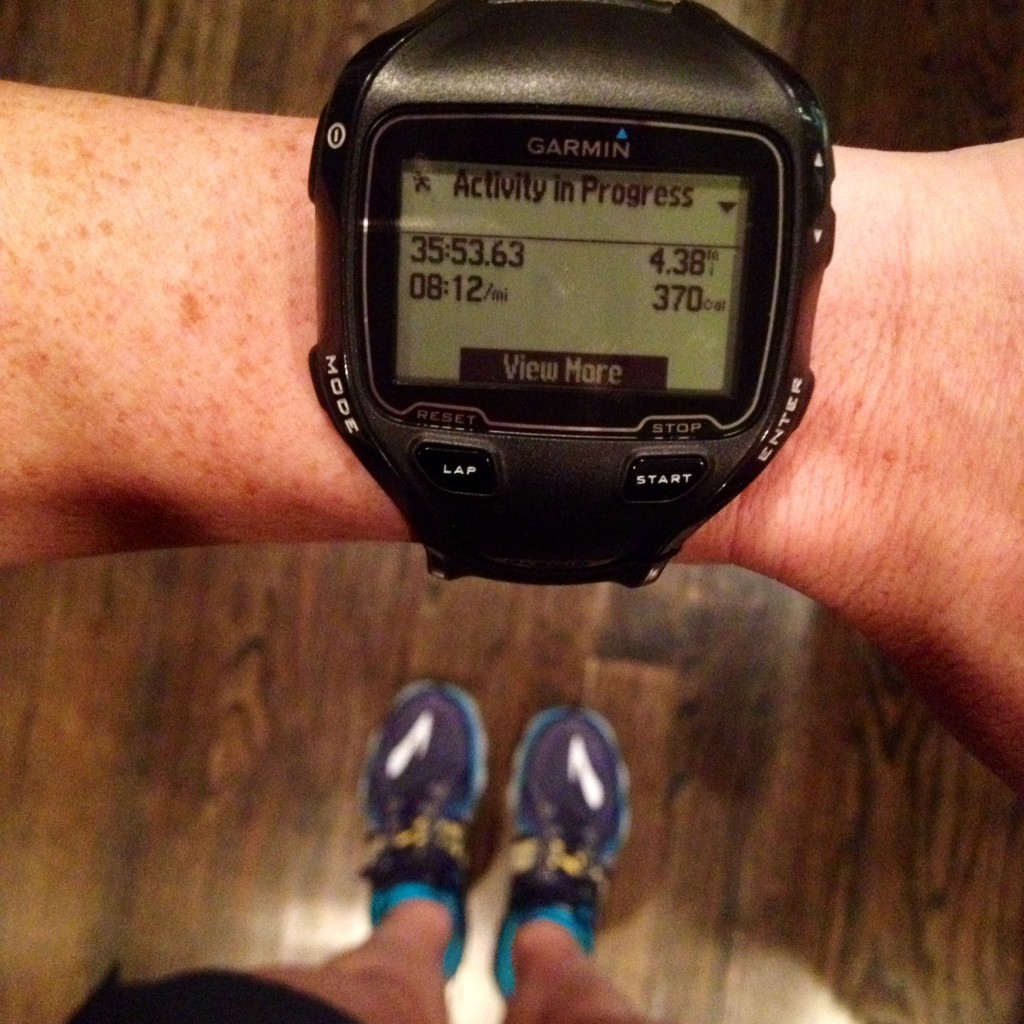Race Recovery Tips
Rest and recovery throughout training and following a race are critical components to speed recovery, reduce injury risk and help prevent mental fatigue. For those of you training for any long-distance race, you know it takes a lot of hard work, quite a few sacrifices and sometimes the mental strength and discipline of a superhero to fit everything in. It’s easy to forget how important rest and recovery are – just as important as those tough speed sessions and long runs we log each week.
It has been 10 days since I ran the Albany Marathon. Even though I have 2 races scheduled in April, I have truly taken race recovery to heart this month. During the past 10 days, I’ve only run twice. I’ve logged 9 miles over the period of 10 days. I’ve slept in. I’ve rested. And although temporarily, I haven’t worried about training, cross-training and everything else that I’m constantly thinking about when it comes to running (and triathlon training). Sure, I could have done a little more (maybe even should have done a little more), but we all need a break! It’s ok to take a little time (or a lot of time) to decompress, to enjoy the high of a great race and reconnect with the reason you love doing this in the first place.

I’m finally back on the running grid, but a little time off has done wonders for my mind and my body. Since I’ve been in recovery mode, I’m sharing some race recovery tips with you today. Here are 5 key areas to keep in mind when it comes to race recovery tips. (These race recovery tips are consistent with recommendations from the North American Academy of Sport Fitness Professionals through which I am being certified as a marathon coach.)
Race Recovery Tips
Immediately following a race. Immediately following a race, cool down by walking or slowly jogging until your heart rate returns to normal. Wait about an hour or 2 after a long race to stretch. If you can soak your legs in cold water to help reduce inflammation, that is great. Hydrate by drinking a cup of water every hour for 6 hours, and be sure to replenish lost electrolytes. Eat within 30 minutes after your race, getting a mix of carbohydrates, protein and fats. A good rule of thumb is to consume about 50 grams of carbs within that first 30-minute window. Click here to see some sample post-race/post-long run fueling ideas from the nutritionist for the Brooks Beast Track Club.
Duration of recovery. After a race, there are some normal side effects you will likely experience, such as decreased energy, soreness and possibly even emotional blues. This is all normal. A recovery period can help with all of these things and typically lasts between a week and a month depending on the length of your race and your fitness level. A good rule of thumb is that you will need 1 day of recovery for every mile you ran in your race. For example, since I ran 26.2 miles on March 1, I may need up to 26 days to fully recover. This of course is an estimate, and more conditioned athletes may only need about 7 to 10 days, while newer athletes will need a full 3 to 4 weeks. Lower mileage and easy training days should be the focus during this recovery period.
Activity & training during recovery. The first week after a big race should be easy and consist of a lot of rest (4 to 5 days of no activity), with a few easy miles toward the end of the week if you are feeling up to it. The second week after the race should resemble a taper-like week, with easy and hard days being alternated (still taking 2-3 days of rest) and avoiding speed work/intervals. Most runners can return to building again during the third week, reintroducing cross training and gradually incorporating speed work/tempos again. Newer runners may want to wait another week or 2.
Race condition maintenance. To maintain race conditions, the North American Academy of Sport Fitness Professionals recommends the following weekly mileage for the below distances. Remember, this is just a guide, and what works for some people may be different for others:
- Maintain 10K race conditioning: Run about 20 miles per week, with mileage peaking around 25 miles per week every third week (with your long run being 6.2 miles).
- Maintain half marathon race conditioning: Run about 25 miles per week, with mileage peaking around 35 miles per week every third week (with your long run being 12 miles).
- Maintain marathon race conditioning: Run about 35 miles per week, with mileage peaking around 45 miles per week every third week (with your long run being around 20 miles).
Decompress and have some fun. After a race, stop worrying about the race, your training and doing everything perfect. Take some time off. Do something fun. Relax! If continuing to train and race is something you want to do, you need to take physical and mental breaks to keep enjoying it and to continue being healthy and happy doing it.

What does your recovery look like after a big race like a half marathon, marathon or long distance triathlon? What additional race recovery tips would you share?



Comments
Oh my goodness, Jesica your recovery post is so right on the money!
After my first marathon in Chicago – I broke all the recovery rules and paid dearly for it. Finshed the race…”showered” in fire hydrant spray that the volunteers were soaking the runners with. (if you wanted to walk through it) walked from the finish to the L Train and then directly to the O’hare to catch a flight home. Changed clothes and sponge bath at the airport. Waited an hour for a flight and then 2.5 hour flight to Atl and a 40 mile drive home. I remember crawling into bed that night and my legs were still “running” and my body just ached. Two days later I ran three miles and my IT band started hurting. It got so bad over the next few weeks I thought I was going to have to stop running :(. Recovery finally came with lots of rehab. From then on I have followed the recovery plan that was attached to whatever training plan I used for the race and have had no problems. Thanks for sharing this most important part of running and racing that helps us all to have long running “careers”
I’m so glad this post resonated with you Victor. I can totally relate to your story. Chicago was my first marathon back in 2010, and I had a flight scheduled about 4 hours after the race (fail!). I was so sore sitting crammed onto my plane seat for 2 hours. I didn’t really understand the importance of proper recovery then. I’m sorry to hear that it caused you an injury, but so glad you are on a long road to running success now!!!
Hi from Red Mt Resort! My training included lots of variety this week. Can’t wait to be using these tips in 11 days!! Thx also for the nutrition info-very helpful!
I ran my first marathon last October, and it definitely took its toll on my body. My legs were super sore for about 3-4 after, but I walked for about an hour each day, stretched, and foam rolled a lot. I think I started running again (easy) a week after the marathon. Immediately after the race, I rehydrated, ate watermelon, and some carb-y snacks from my goodie bag.
Hello! Thanks for sharing some great tips to unwind 🙂 I love to take the week off from “training” after my race, as long as I don’t have another one lined up within the month!!! I usually do lots of walking during that week, stretching, and foam rolling! And I also thoroughly enjoy a nice glass (or two!) of wine 🙂
Thanks for the recovery tips! I’m trying to get better at properly recovering. After my last half marathon it took a week before my legs felt back to normal. Back when I did my half IM, I needed a couple of weeks before I was ready to get back at it.
Great tips, and there are things that I can definitely work on. Like, maybe, the walk to the car shouldn’t count as my cool down. A thought.
For me, it’s all about the distance. As I feel more conditioned at the half marathon level, I take a few days off after a 13.1 and resume easy running mid-week. I tend to drop my mileage the first couple weeks, ala reverse taper. Depending on how hard I trained, I will also forgo quality workouts for up to a month just for the mental break. I’m also wearing compression socks for a good day (or more) to help.
That sounds like a great recovery plan, Kim!
Great post!
I give myself the first week super easy – last week after a marathon on Sat march 1, I took 3 full rest days and did one easy spin and one Pilates class and finally got my first run in on Sunday, 8 days post race (45 min)! This week I did more Pilates, short runs and spins. I get excited to get back to training after only one week off and need to remind myself to slow down! I definitely have learned lessons about not taking enough time off post race so I’m trying to be extra smart this time!
Great tips! I like your race condition maintenance guidelines. I might have to change my schedule up a little bit. 🙂 Thanks for sharing! I always look forward to your posts and tips.
I’m so glad this was helpful, Samantha. Thank you so much for your kind words. Love having you here as part of the conversation. Happy running!
Thanks for the race recovery tips! I think recovery is always worse than running the actual race 🙂
After my first marathon last October, I used Hal Higdon’s Marathon Recovery program. It’s basically a four week plan, which follows many of the principles outlined in your article. After those four weeks, I was ready to start with my next racing cycle of 5ks and half marathons.
[…] giving some tips for race recovery. I am terrible at actually thinking about and planning for race recovery, so I […]
Great tips!! Recovery is just as important as the training itself. Sometimes I just keep going and don’t take any time off. I have definitely gotten better. Usually after a marathon I take a week off and my Ironman in July I plan to take 2 weeks off. I am already excited for that! (is that bad?) 🙂